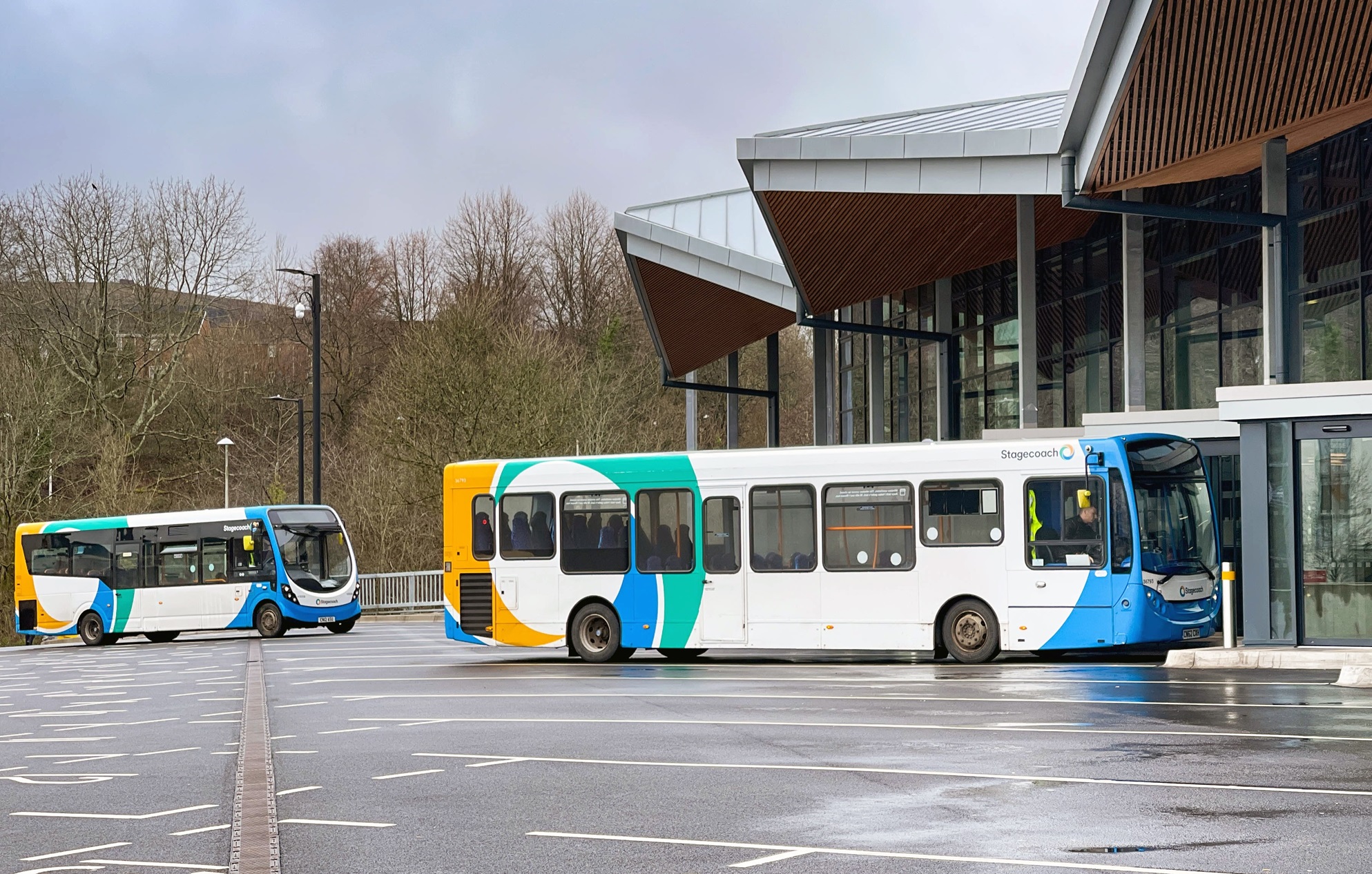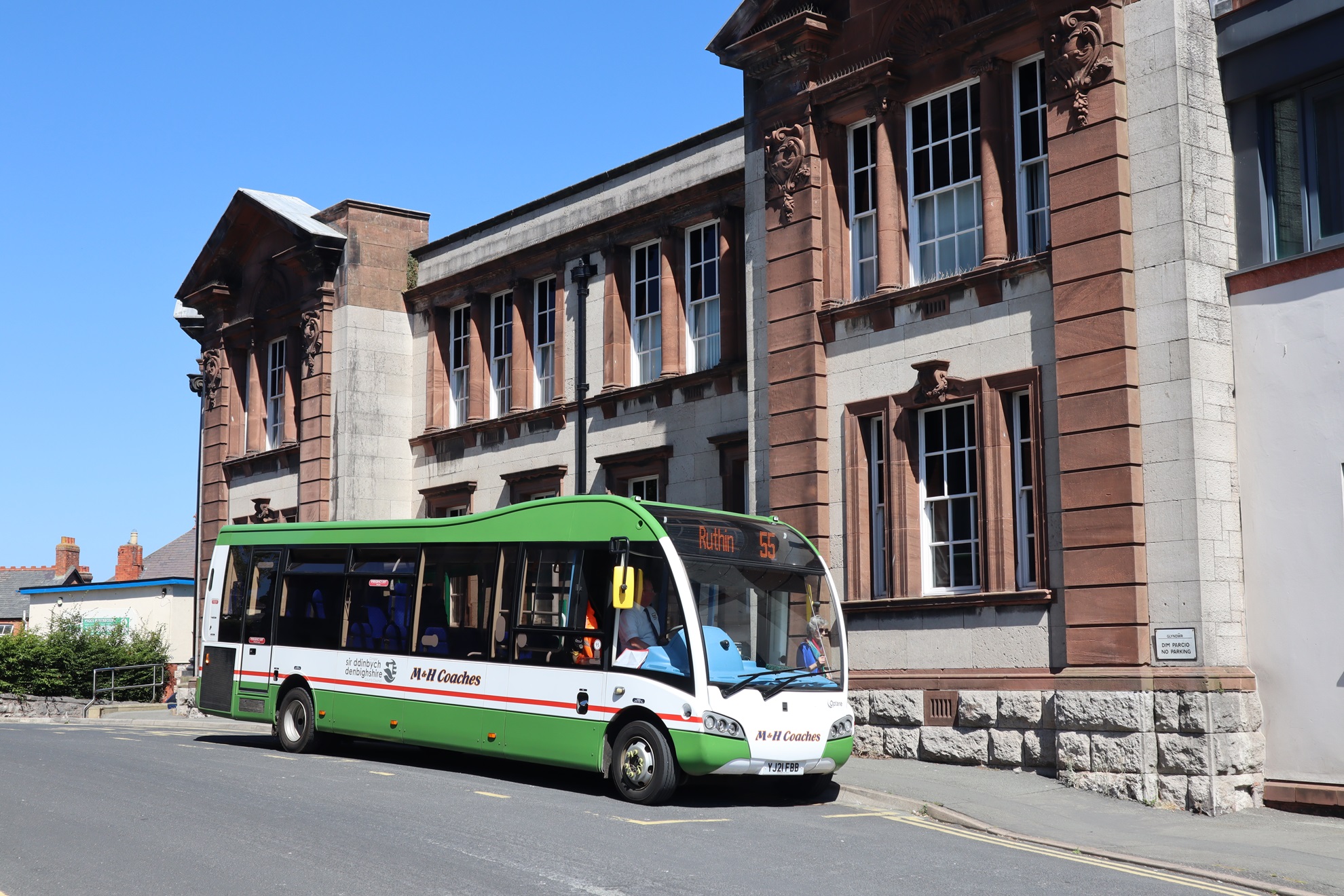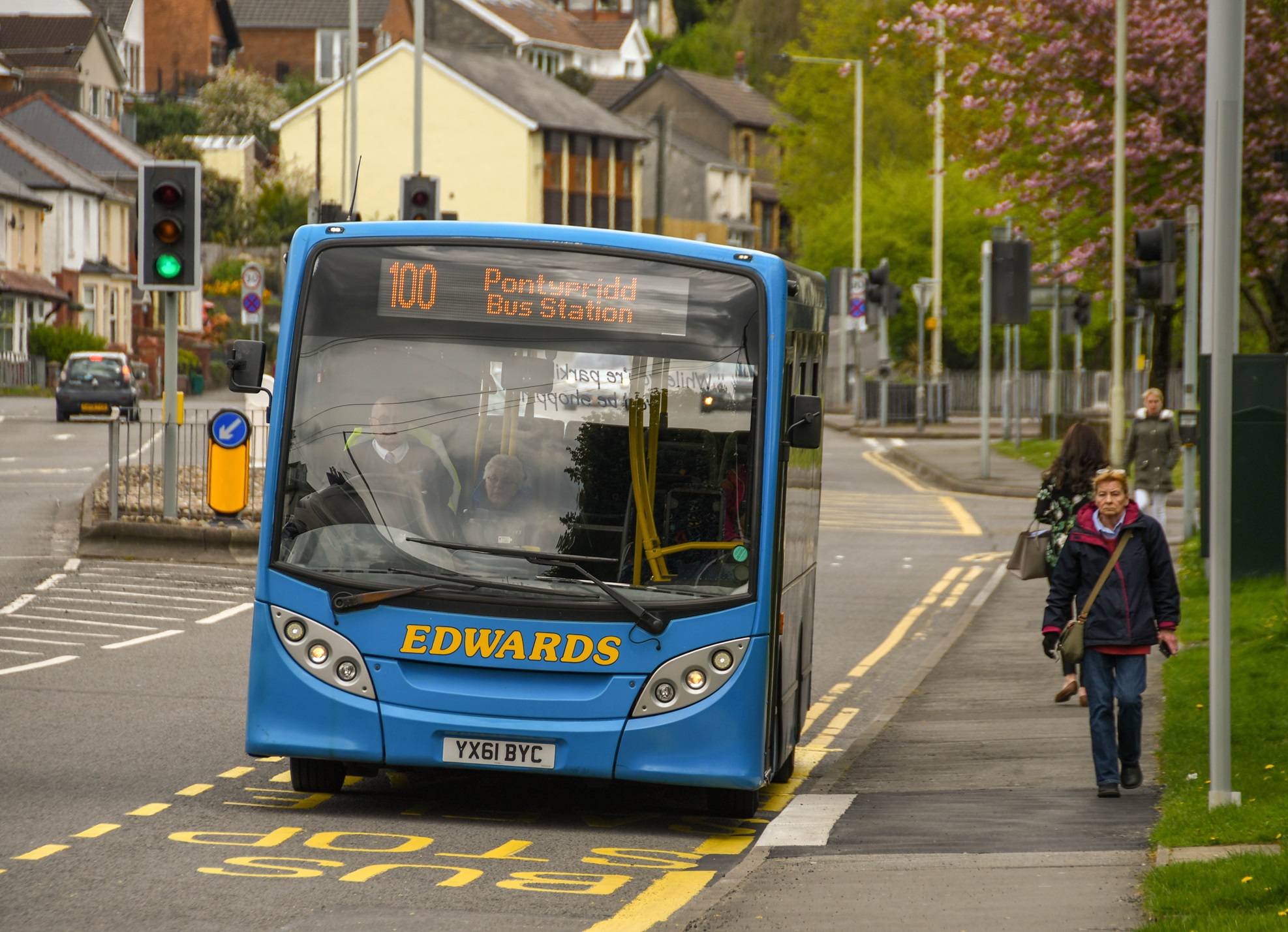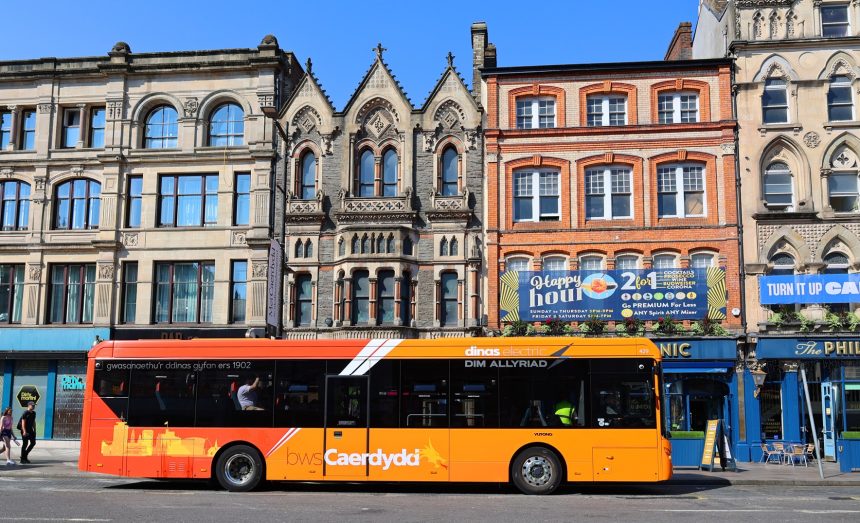Bus franchising in Wales should be delivered via a net cost, or minimum subsidy, model rather than the Welsh Government’s gross cost approach, the Confederation of Passenger Transport (CPT) Cymru has said.
Its proposals are contained in a report, Y Ffordd Gymreig: Delivering franchised bus services the Welsh Way, compiled by consultancy Tracsis and published in early November.
Under the model advocated by CPT, the Welsh Government would gain its desired control of networks, fares, branding and vehicle specification. Operators would bid against what the Confederation terms a “base network,” but with scope to propose adjustments that could grow revenue and/or reduce costs and with incentivisation to deliver on those.
Such an approach would generate a claimed additional 40 million bus journeys per year in Wales. It would also bring “far-reaching socioeconomic benefits for millions of Welsh bus passengers” and allow what CPT says would be many service enhancements, including new routes.
Franchising need in Wales accepted by bus operators?
The trade body states that bus operators in Wales accept that there is “a need for the regulatory regime to change,” although they may not necessarily support a gross cost franchising model or consider it to be the best way forward.
CPT Cymru Director Aaron Hill says that the White Paper published by the Welsh Government in 2022 that outlined franchising aspirations “is a welcome move towards a longer-term plan” for the country’s buses. But delivering change via the gross cost approach “presents significant risks to the public purse, to operators, and ultimately to passengers.”

The White Paper acknowledged that delivery of bus services in Wales will be subject to the available funding envelope. CPT adds that the Welsh Government has “limited borrowing powers” to invest in franchising and fleet upgrades.
Gross cost risks are in “sharp focus when you consider our economic wellbeing as a nation,” says Mr Hill. “Delivering the scale of ambition set out in the White Paper will require a level of long-term investment and certainty that does not seem feasible, and indeed, the proposals may expose bus services to further funding risks than those they already face.”
Net cost franchising model ‘will still deliver WG aspirations’
In a rowing back of previous advocacy of partnership working in Wales, CPT believes that its alternative net cost approach to franchising will still deliver what is called for in the White Paper.
The Confederation cites the regulated network in Jersey as one from which Wales could learn. Jersey began in 2002 with a gross cost approach but moved to a minimum subsidy mechanism in 2013.
The report notes how that shift delivered a 13% uplift in patronage in the first year, and 38% over four years, along with cost savings. A net cost policy for bus franchising in Wales would deliver “most if not all of the objectives that the Welsh Government seeks, while still providing revenue and cost incentives for operators,” it continues.
Adds Mr Hill: “There is much to be learned from the approach in Jersey, and our research has taken many of the elements of [that] model and its central economic proposition, and built on it to create the proposals in Y Ffordd Gymreig.”
He says that at its worst, a net cost approach to franchising would still deliver the base network to the Welsh Government’s specification. “But far more likely, [it gets] a better service, carrying more passengers, for less taxpayer money,” the report believes.

SME risks must be a factor in franchising build and packaging
Echoing growing concerns in England, the document questions how gross cost franchising could “pose serious risks” to SME bus operators in Wales.
Many areas of the country are particularly reliant on those businesses for service provision, and CPT says that multiple challenges to SMEs must be considered in any future regulatory system.
Among those are a complex and time- and cost-heavy bidding process for contracts; costs of reporting; the complexity and nature of any penalty regimes; and the impact of moving to zero-emission buses, particularly where existing depots are unsuitable for them. A healthy SME sector is imperative for contracted home-to-school services, the report adds.
It also notes that while mention has been made of more municipally-owned bus operators in Wales, it would “seem unlikely” that local authorities would have the resource to establish such undertakings. CPT adds that a franchised environment – with no guarantee of a contract win – makes further municipals an outlier.

Considered in a sister report, Minimum Subsidy Franchising: Y Ffordd Gymreig, is how franchises in Wales could be packaged. That may extend from larger town or city networks to single routes in rural areas. Also forming part of that report’s work is asset supply and ownership, and the move towards zero-emission.
“We think that Y Ffordd Gymreig provides the best of both worlds,” the core report observes. “It is absolutely franchising, with the state in full control of service specification, fares, timetables, and branding.
“But rather than the state being the only source of skill and talent and ideas in the sector, it also unlocks the energies and capabilities of dozens of entrepreneurial operators already running buses across Wales today.”
Download the associated reports here.



























